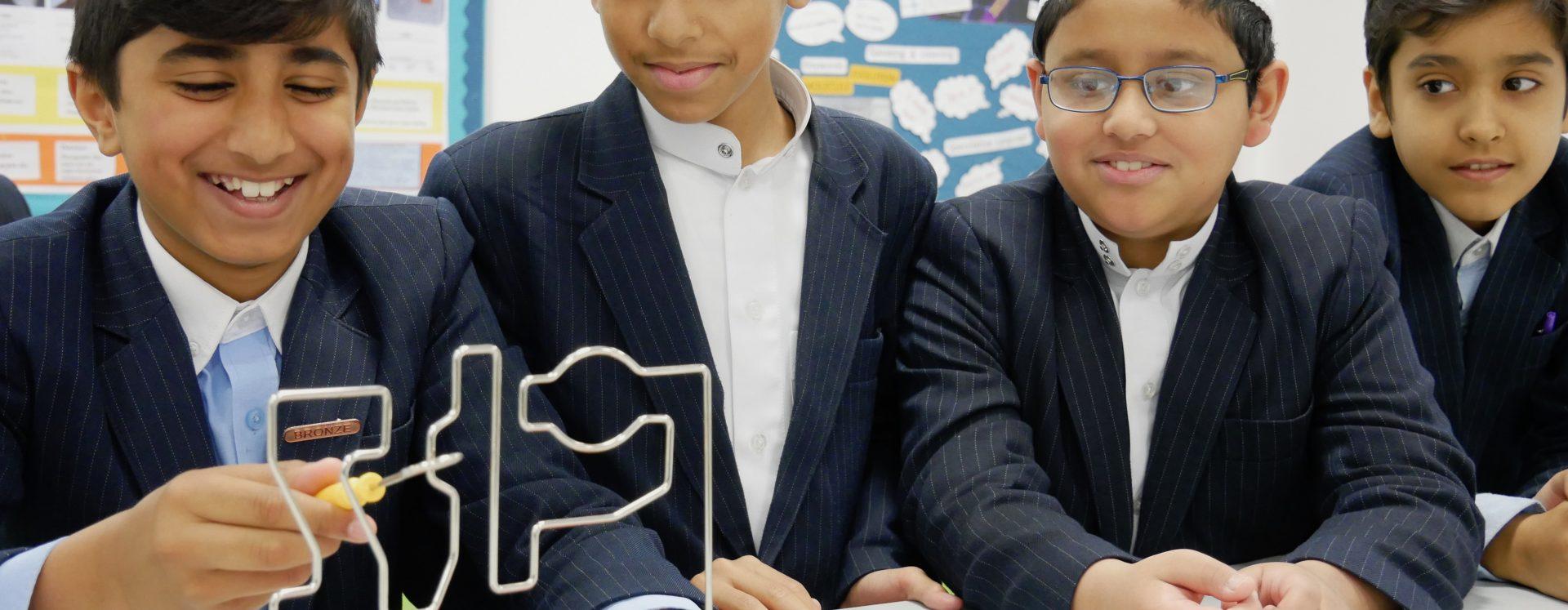Nasheed
Why study Nasheed?
Nasheed (music) is instrumental in allowing pupils to engage and develop in academic, personal, faith and social development. It builds a stronger sense of self-identity, character and cultivates a better tolerance and respect of the diverse cultures that shape the world we live in.
By studying Nasheed, pupils acquire a deeper understanding of different music and increase their creativity, sense of achievement and understanding of the world around them. Nasheed stimulates young minds, providing an outlet for creative expression and enhancing learners’ experience in faith and character.
We will develop pupils’ understanding of Nasheed with learning that resonates with their faith and cultural contexts whilst ensuring that they have meaningful encounters and develop a thorough awareness of the rich musical contexts of the world around them. Pupils’ experiences in Nasheed will provide for them narratives that reverberate as lifelong experiences; unlocking their creative and performative talents.
There are three guiding elements which are brought to life in the faith music curriculum:
Educational excellence: music teachers enable pupils to play and perform confidently in a range of solo and ensemble contexts using their voice, playing instruments musically, fluently and with accuracy and expression. They can improvise and compose; and extend and develop musical ideas by drawing on a range of musical structures, styles, genres and traditions
Character development: teachers emphasise that the music they love will be part of the narrative of their lives and bring colour to the experiences that shape them. Music will be a source of comfort through difficult times and help them to manage their emotional and spiritual wellbeing
Service to communities: Music education enables pupils to become more aware of cultures and social contexts at both micro and macro levels. Pupils learn that music is a powerful means to communicate and raise awareness of ideas and peoples’ contexts throughout history. Musical performances lend to developing community cohesion, lift the spirit, improve mental and emotional wellbeing, hence supporting those at a disadvantage
How will I study Nasheed?
Pupils will:
- perform, listen to, review and evaluate music across a range of historical periods
- appreciate genres, styles and traditions, including the works of the great composers and musicians
- learn to sing and to use their voices, to create and compose music on their own and with others
- learn a musical instrument, use technology appropriately and progress to the next level of musical excellence
- understand and explore how music is created, produced and communicated
What will I learn at Key Stage 3?
In Year 7, pupils build upon musical knowledge they have from a primary level and develop a strong knowledge of melody, rhythm and musical structures. Pupils get to know the importance of Prophet Muhammad (Peace Be Upon Him) in Islam and utilise their creativity to compose and perform various Nasheeds about Prophet Muhammad (Peace Be Upon Him).
In Year 8, pupils build on the previous year’s knowledge to know: the elements of music more deeply and melody and rhythm through a variety of composing, performing and listening tasks. Pupils develop a richer appreciation of Nasheed related to specific cultures through the exploration of key beliefs from Islam.
Year 9 pupils know about other musical features and devices that the great composers used to make music more interesting through time and place. They use their knowledge to compose, perform, listen to and appraise Nasheed based on specific cultural and social musical contexts, with an awareness of some key Islamic concepts.
Assessment
Internal assessments take place task place at regular intervals throughout both KS3. Broadly, there are two types of assessment; fluency composite task and a composite test.
Composite fluency tasks are completed at the end of a topic and are used to check whether students are reaching curriculum related expectations.
Composite tests are used to assess the cumulative coverage of the curriculum and check whether learning is sticking over time and if students are reaching curriculum related expectations.
Enrichment
The Nasheed department offers subject-specific enrichment clubs and organises a range of educational visits throughout the year.
Careers
The study of Nasheed can lead to future careers ranging from becoming a video game composer or sound designer, Nasheed artist, composer or sound engineering technician. There is an array of famous Nasheed artists who have gone on to study at acclaimed colleges and universities.
Useful resources and revision support
KS3 Music – BBC Teach ·
KS3 – Musical Futures ·
Home Learning Resources | Music Mark

